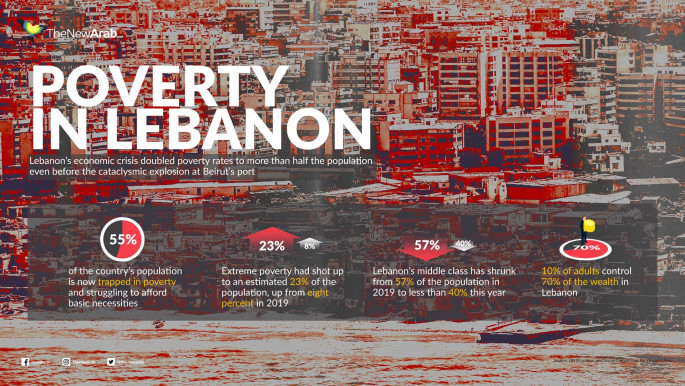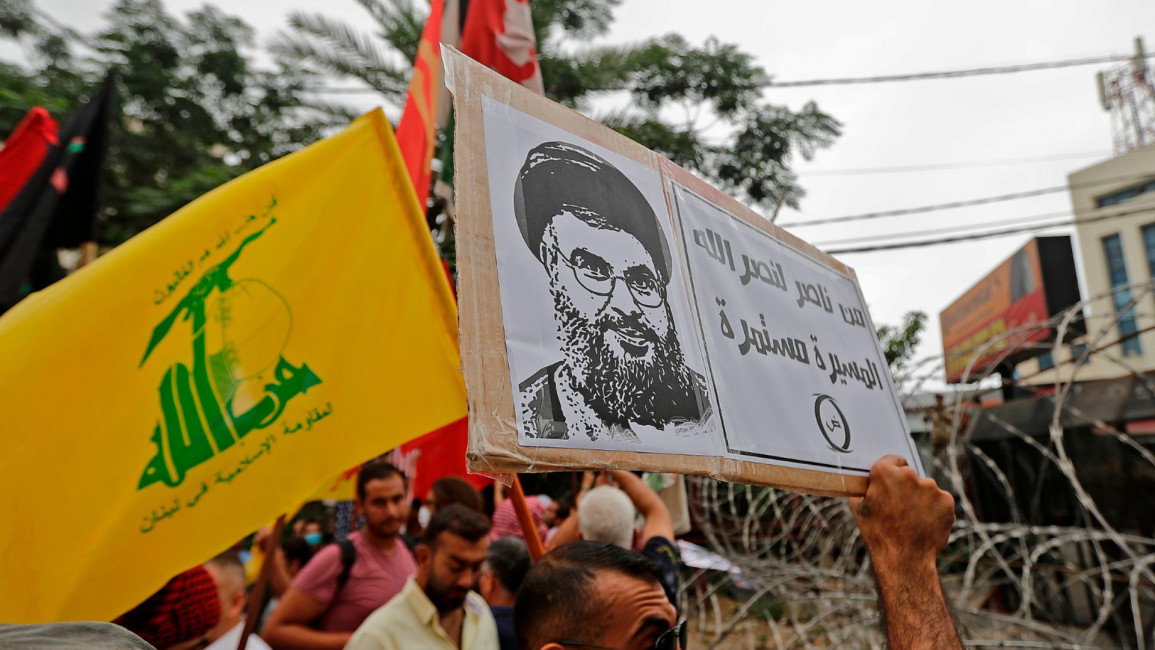With food and fuel, Hezbollah braces for the worst as Lebanon's economy collapses
As Lebanon's economic crisis exacerbates, Hezbollah is preparing for a full collapse of the Lebanese state, issuing ration cards for food, importing medicine and readying storage for fuel provided by its Iranian backers, sources familiar with the militant group's plan have told Reuters.
The Lebanese state is currently struggling to import enough food or fuel to meet the country’s needs.
Lebanon’s currency hit all-time lows last month as the country ran out of US dollars. Food prices have also soared by 400%, and more than half of the population now lives below the poverty line.
Pro-Hezbollah sources, who declined to be named, told Reuters that the plan for a potential worst-case scenario came amid the threat of state subsidies ending in the coming months.
This is widely expected to trigger further poverty and social discontent.
Hezbollah’s plans aim to help members of the movement and residents of Shia areas in Lebanon, which the group considers to be its support base, one of the sources told Reuters.
“The preparations have begun for the next stage...It is indeed an economic battle plan,” said a senior official.
When asked about Hezbollah’s plans, Leila Hatoum, an adviser to Lebanon's caretaker Prime Minister Hassan Diab, said the country was “in no condition to refuse aid” regardless of politics.
Hezbollah's new ration cards help hundreds of people buy Iranian, Lebanese, and Syrian manufactured items at a discount of up to 40%.
The card can be used at co-ops in Beirut’s mainly Shia southern suburbs where Hezbollah is active. The sources did not provide further details on the budget for the ration card or who will receive the cards.
Hezbollah has opened new supermarkets within a chain called "Al-Sajjad," named after the Shia imam Ali Al-Sajjad who was known for his generosity, a party official told France 24.
|
|
Hezbollah members have approached people within the neighbourhoods to offer them cards to use in the supermarket chain.
Fatima Hamoud, in her 50s, said the ration card allows her to buy grains, oil and cleaning products for a household of eight people.
“They know we’re in bad shape,” she told Reuters. “Without them, what would we have done in these tough times?”
A second source said Hezbollah had launched the cards to extend services beyond the party and fill gaps in the Lebanese market. They said the cards offer a quota, based on family size, for key goods like sugar and flour.
Read also: In Lebanon, even vaccine distribution can't escape political bribery
Hezbollah has imported goods from companies in allied countries like Syria and Iran, and sometimes does not have to pay customs fees on the Syrian border.
Since the Syrian conflict began ten years ago, Hezbollah militants have fought alongside President Bashar al-Assad's regime against Syrian opposition forces.
The source added that Hezbollah had similar plans regarding imports of medicine and pharmacists in the southern suburbs of Beirut said they had received training on new Iranian and Syrian brands that popped up on their shelves in recent months.
Two of the sources added that Hezbollah planned to stockpile fuel from Iran, as the country faces a possible total electricity blackout.
“When we get to a stage of darkness and hunger, you will find Hezbollah going to its back-up option...and that is a grave decision. Then Hezbollah will fill in for the state,” said one source. “If it comes to it, the party would’ve taken its precautions to prevent a void.”
On Thursday, Lebanon’s caretaker Energy Minister Raymond Ghajar blamed the country's chronic fuel shortages on smugglers exporting subsidised supplies to war-torn Syria.

Follow us on Facebook, Twitter and Instagram to stay connected



